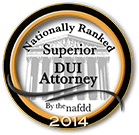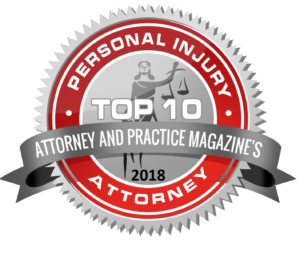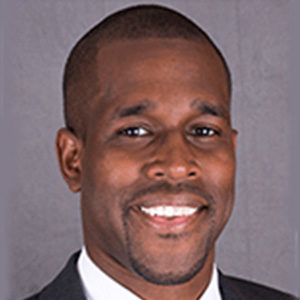Slip and fall cases are among the most common personal injury claims, and understanding liability in such cases is crucial for anyone who has suffered an injury on someone else’s property. In Virginia, the laws governing slip and fall incidents are complex, and determining who is at fault requires a deep understanding of premises liability. The concept of liability is central to these cases, as it establishes the legal responsibility of the property owner or occupier. This responsibility is based on the duty of care owed to individuals who enter the property. Whether you slipped on a wet floor in a grocery store, tripped over an uneven sidewalk, or fell due to poor lighting in a parking lot, understanding the nuances of liability can help you navigate the legal process and seek compensation for your injuries.

What is Premises Liability in Virginia?
Premises liability is a legal doctrine that holds property owners and occupiers responsible for injuries that occur on their property due to unsafe conditions. In Virginia, as in many other states, premises liability is grounded in the notion that property owners have a duty to maintain their property in a reasonably safe condition for visitors. This duty extends to different categories of visitors, including invitees, licensees, and trespassers. Each category carries a different level of responsibility for the property owner, and understanding these distinctions is key to determining liability in a slip and fall case. Invitees, for example, are individuals who are invited onto the property for a business purpose, such as customers in a store. Property owners owe the highest duty of care to invitees, which includes regularly inspecting the property for hazards and promptly addressing any unsafe conditions. Licensees, on the other hand, are individuals who enter the property for non-commercial purposes, such as social guests. Property owners must warn licensees of any known dangers that are not obvious. Trespassers, who enter the property without permission, are owed the least duty of care, but property owners cannot willfully cause harm to them.
Proving Negligence in Slip and Fall Cases
To establish liability in a slip and fall case in Virginia, the injured party must prove that the property owner was negligent. Negligence, in this context, refers to the failure of the property owner to exercise reasonable care in maintaining the property. Proving negligence requires demonstrating that the property owner knew or should have known about the hazardous condition that caused the fall and failed to take appropriate action to remedy it. This can involve showing that the owner did not take reasonable steps to inspect the property, failed to provide adequate warnings about the hazard, or did not fix the problem in a timely manner. It is also necessary to show that the hazardous condition was the direct cause of the injury. This means establishing a clear link between the dangerous condition on the property and the slip and fall incident. Additionally, the injured party must demonstrate that they were not acting in a reckless or careless manner at the time of the fall. For instance, if the injured person was distracted or ignored a warning sign, their own actions might reduce or even eliminate the property owner’s liability under Virginia’s contributory negligence rule.
Virginia’s Contributory Negligence Rule
Virginia is one of the few states that follows the contributory negligence rule, which can significantly impact slip and fall cases. Under this rule, if the injured party is found to be even slightly at fault for the accident, they may be barred from recovering any compensation. This strict standard means that it is not enough to prove that the property owner was negligent; the injured party must also demonstrate that they did not contribute to the accident in any way. For example, if someone slips on a wet floor in a store, but it is determined that they were not paying attention or ignored a warning sign, they could be deemed partially at fault. In such a scenario, the contributory negligence rule would prevent them from receiving any damages, even if the store was negligent in failing to clean up the spill. Because of this harsh rule, slip and fall cases in Virginia require a thorough investigation and careful presentation of evidence to ensure that the injured party’s actions do not undermine their claim.
Common Defenses Used by Property Owners in Slip and Fall Cases
Property owners in Virginia often employ several defenses to avoid liability in slip and fall cases. One common defense is to argue that they were not aware of the hazardous condition and that they did not have enough time to address it before the accident occurred. For instance, if someone slips on a spill in a grocery store, the store owner might claim that the spill had just occurred and that employees were in the process of cleaning it up. Another defense is to argue that the hazard was so open and obvious that the injured party should have been able to avoid it. This defense is based on the idea that property owners are not responsible for injuries caused by dangers that are clearly visible and could be easily avoided by an ordinary person exercising reasonable care. In some cases, property owners may also argue that the injured party was trespassing at the time of the accident, thereby reducing or eliminating their duty of care. Additionally, under Virginia’s contributory negligence rule, property owners may attempt to prove that the injured party was partially at fault for the accident, which would prevent them from recovering any compensation.
Steps to Take After a Slip and Fall Accident
If you have been injured in a slip and fall accident in Virginia, there are several important steps you should take to protect your rights and strengthen your case. First, it is essential to seek medical attention immediately, even if your injuries seem minor. A medical evaluation not only ensures that you receive the necessary treatment but also provides documentation of your injuries, which is crucial for your claim. Next, report the accident to the property owner or manager as soon as possible. Be sure to obtain a written report of the incident, including the date, time, and location of the accident, as well as a description of the hazardous condition. If there were any witnesses to the accident, try to collect their contact information, as their testimony could be valuable in proving your case. Additionally, take photographs of the scene of the accident, including the hazard that caused your fall and any visible injuries. These photos can serve as critical evidence in demonstrating the property owner’s negligence. Finally, it is advisable to consult with a knowledgeable attorney who can help you navigate the legal process and ensure that your rights are protected.
How a Virginia Slip and Fall Attorney Can Help
Navigating the legal landscape of a slip and fall case in Virginia can be challenging, especially with the complexities of premises liability law and the contributory negligence rule. A skilled slip and fall attorney can provide invaluable assistance in building a strong case and maximizing your chances of recovering compensation. An attorney can conduct a thorough investigation of the accident, gather evidence, and consult with professionals to establish the property owner’s negligence. They can also help you understand the full extent of your damages, including medical expenses, lost wages, and pain and suffering. Moreover, an attorney can negotiate with insurance companies on your behalf to secure a fair settlement or, if necessary, represent you in court to pursue the compensation you deserve. Given the high stakes involved in slip and fall cases, having an experienced attorney by your side can make a significant difference in the outcome of your case.
Choosing a Personal Injury Attorney Personal Injury Case TimelineRelated Videos
Understanding the Statute of Limitations in Virginia Slip and Fall Cases
In Virginia, slip and fall cases are subject to a statute of limitations, which is the legal time limit for filing a personal injury lawsuit. The statute of limitations for slip and fall cases in Virginia is generally two years from the date of the accident. This means that if you do not file your lawsuit within this time frame, you may be barred from pursuing your claim and recovering any compensation. It is important to note that this time limit applies to the filing of the lawsuit, not the resolution of the case. Therefore, it is crucial to act quickly after a slip and fall accident to ensure that your claim is filed within the legal deadline. Consulting with an attorney soon after the accident can help you avoid missing this critical deadline and ensure that your case is properly prepared and filed in a timely manner.
What Compensation Can You Recover in a Slip and Fall Case?
If you are successful in proving liability in a slip and fall case in Virginia, you may be entitled to recover various types of compensation. This compensation is intended to cover the economic and non-economic damages you have suffered as a result of the accident. Economic damages include medical expenses, such as hospital bills, doctor visits, physical therapy, and any future medical costs related to your injuries. You may also be entitled to recover lost wages if your injuries have prevented you from working, as well as compensation for any loss of earning capacity if your ability to work has been permanently affected. Non-economic damages are more subjective and include compensation for pain and suffering, emotional distress, and loss of enjoyment of life. In some cases, punitive damages may also be awarded if the property owner’s conduct was particularly egregious or reckless. However, the amount of compensation you can recover will depend on the specific circumstances of your case, including the severity of your injuries and the degree of the property owner’s negligence.
Understanding liability in slip and fall cases is essential for anyone who has been injured on someone else’s property in Virginia. The complexities of premises liability law, combined with the strict contributory negligence rule, make these cases particularly challenging. However, by taking the right steps after an accident and working with a skilled attorney, you can protect your rights and pursue the compensation you deserve. If you or a loved one has been injured in a slip and fall accident, do not hesitate to seek legal guidance. The dedicated legal team at NovaLegalGroup, P.C. is here to help you navigate the legal process and fight for your rights. Contact us today to schedule a consultation and learn more about how we can assist you with your case.










